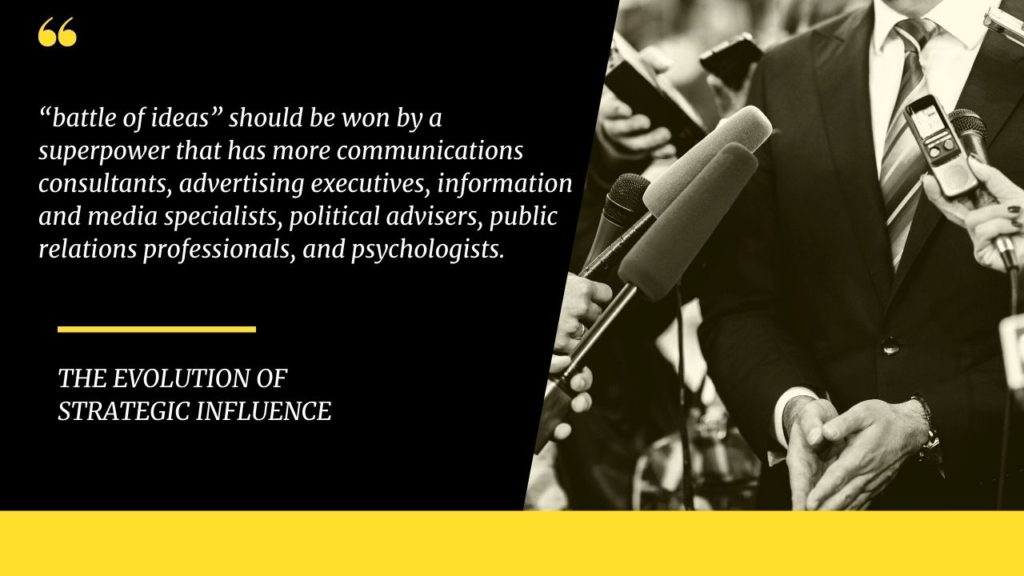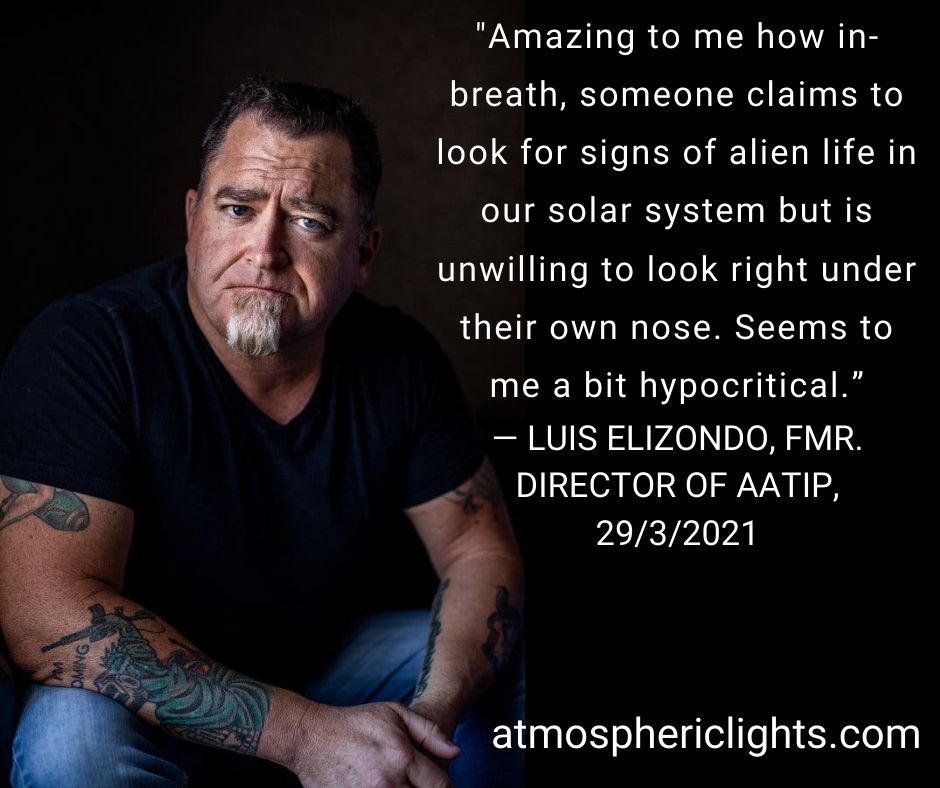In this article, I will closely examine the government’s psychological tactics to cover up some recent claims of the destruction of Luis Elizondo’s emails.
What is Strategic Influence?
Many names have known strategic influence and its elements: foreign information programs, psychological warfare, public affairs, international information activities, political warfare, propaganda, psychological operations, general information, public diplomacy, global military information, information operations, influence operations, and perception management.
Moreover, strategic influence has always had both overt and covert components. The Destruction of Luis Elizondo’s emails is all over the media today. Is this proof of a strategic influence?
Strategic influence is nothing new; the DoD has conducted strategic influence campaigns since its beginning.
The history of strategic influence in the DoD has been a roller coaster, with ups and downs and random unexpected turns in new directions. And like a roller coaster, it always ends up back where it started.

This oscillating method has resulted from an opportunity that uses persuasion, opinions, and influence at the national level.
It is sometimes thought of unethical and incompatible with democracy and that using “psychological tricks” is “dirty” and immoral.
The successful propaganda efforts of Department of Defence opponents also contributed to distaste in many circles for strategic influence.
Anything that smacked propaganda or psychological warfare is something that only the “bad guys” did: first, the German Nazis, then the Soviets. Luckily, despite this attitude and resistance, most U.S. administrations in the latter half of the 20th Century appreciated both the value and need for strategic influence.
Today, critical informational elements of strategic influence include public affairs, political advocacy, political warfare, public diplomacy, and psychological operations.
While each of the parts contains an influential factor to some degree, they do not constitute strategic influence. Public diplomacy by itself is not a strategic influence.
Psychological operations are not strategic influences. None of those elements can be conducted in isolation. Strategic influence constitutes the orchestrated combination of them all.

The Destruction of Luis Elizondo’s emails
AATIP, or (The Advanced Aerospace Threat Identification Program), was an investigatory effort funded by the United States Government to study UAPs (unexplained aerial phenomena) or UFOs (unidentified flying objects). AATIP was first made public on December 16, 2017.
It began in 2007, with funding of $22 million over the five years until the available appropriations were ended in 2012. And Luis Elizondo, was the AATIP program director. But that all changed when DoD claimed there were no records of him doing this.
Since October of 2017, intrigue and mystery have surrounded Luis Elizondo. He says he headed a secret UFO study known as the Advanced Aerospace Threat Identification Program (AATIP), but his journey telling the story about his career at the Department of Defense has been challenged by the Pentagon every step of the way.
And according to the Pentagon, they destroyed Elizondo’s email box. Is this proof of a strategic influence?
Did the Department of Defence (DOD) have proper authorization to destroy the emails?

“battle of ideas”
“battle of ideas” should be won by those that have more communications consultants, information, advertising executives, public relations professionals, media specialists, political advisers, and psychologists.”
This statement was originally written about “hearts and minds” campaigns during the Vietnam War, but the quote is equally valid today.
“It is the significant actions taken by the government in and of themselves, the appropriate and most desirable arrangements of such actions, and the manner and emphasis of the publication of such actions to the world that advance the struggle for men’s minds and create a desirable climate of world opinion.” –Robert Cutler.
